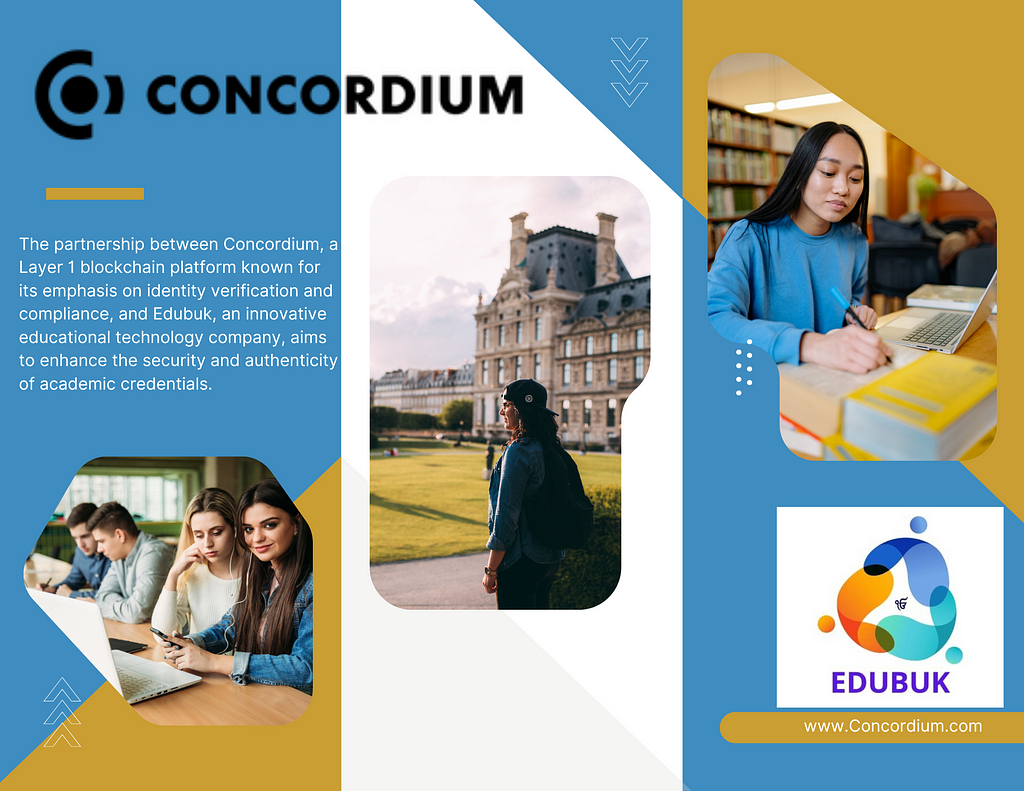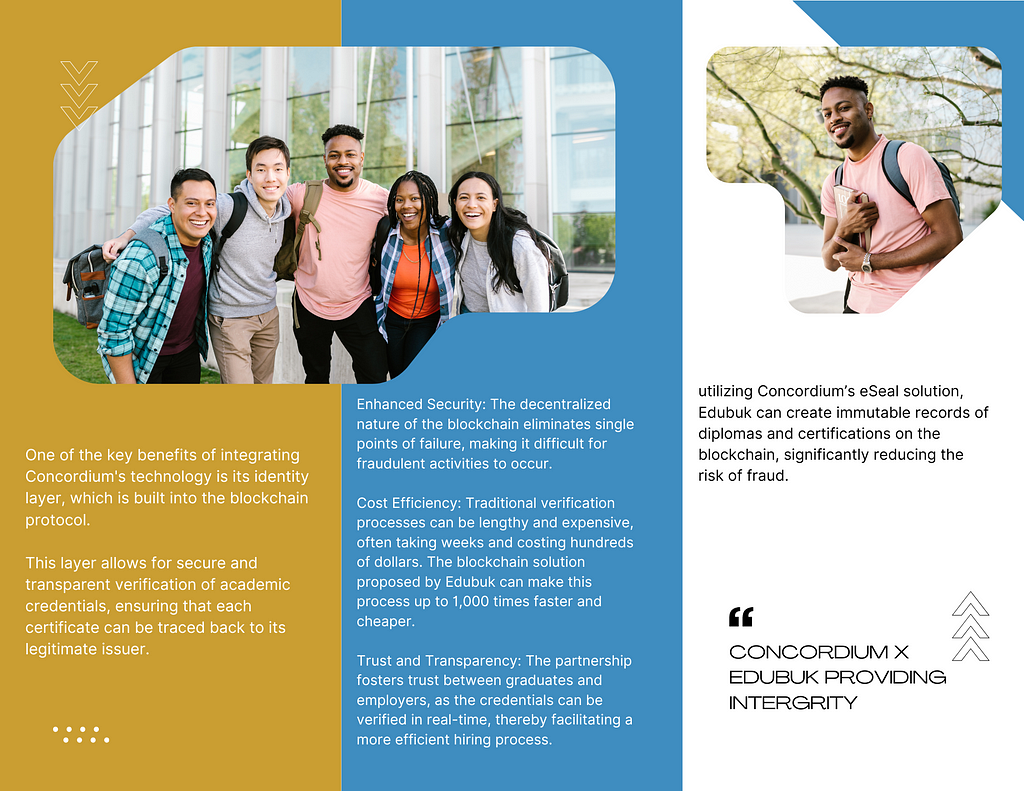Concordium and Edubuk Partnership: Bringing Blockchain Transparency to Academics

The partnership between Concordium, a layer 1 blockchain platform known for its importance in authentication and compliance, and Edubuk, an innovative education technology company, aims to increase the security and accuracy of education certificates. The collaboration aims to tackle the serious problem of fake certificates and improve the verification process for education.
About Edubuk.ioEdubuk.io is an education technology (edtech) company that focuses on leveraging blockchain technology to solve key challenges in the education sector, particularly the proliferation of fake educational certificates. In an era where academic qualifications are critical for career advancement, the problem of counterfeit diplomas has become a significant issue. Fake credentials not only harm the reputation of educational institutions but also create mistrust among employers, making it harder to identify genuine candidates.
Edubuk.io addresses this problem by utilizing blockchain to create immutable and verifiable digital certificates. Through its integration with Concordium’s blockchain technology, Edubuk ensures that each certificate issued is secure, tamper-proof, and easily verifiable. This solution not only protects the integrity of educational qualifications but also streamlines the hiring process, allowing employers to quickly and accurately verify a candidate’s credentials.
Founders: Shivani Mehrotra and Apoorva BajajEdubuk.io was founded by Shivani Mehrotra and Apoorva Bajaj, two visionaries in the edtech space who recognized the critical need for innovation in educational verification.
Shivani Mehrotra:With a background in education and technology, Shivani is passionate about using cutting-edge solutions to solve longstanding problems in the education sector. Her expertise lies in educational management and digital learning, which she has leveraged to design and implement effective educational programs that meet the needs of modern learners.
Apoorva Bajaj:Apoorva brings a wealth of experience in technology and business strategy to Edubuk.io. His focus has been on developing scalable technological solutions that address critical challenges in the education industry. With a deep understanding of blockchain technology, Apoorva has been instrumental in integrating Concordium’s secure identity layer into Edubuk’s platform, ensuring that the company’s offerings are not only innovative but also highly secure and reliable.
Problems Solved by Edubuk.ioEdubuk.io tackles several significant challenges in the education sector:
Counterfeit Certificates:The prevalence of fake certificates undermines the credibility of educational qualifications. By using blockchain technology, Edubuk ensures that all certificates are immutable and can be easily verified, reducing the risk of fraud.
Inefficient Verification Processes:Traditional methods of verifying educational credentials are often slow and costly, creating delays in hiring processes. Edubuk’s solution drastically reduces the time and cost associated with verification, making it more efficient for both institutions and employers.
Trust in Educational Credentials:By providing a transparent and secure method of issuing and verifying certificates, Edubuk fosters greater trust between graduates and employers, leading to a more reliable and fair recruitment process.
Benefits of the Concordium Identity LayerOne of the benefits of the integrated Concordium technology is its own layer built into the blockchain protocol. This system provides secure and transparent verification of educational credentials, ensuring that each certificate can be traced back to its legitimate source. Leveraging Concordium’s eSeal solution, Edubuk can reduce the risk of fraud by creating immutable certificates and certificates on the blockchain.
Enhanced Security:The decentralized nature of the Concordium blockchain eliminates any kind of failure, reducing the possibility of fraud.
Operational Cost:Traditional verification processes can be time-consuming and expensive, often taking weeks and costing hundreds of dollars. Edubuk’s proposed blockchain solution can make this process 1,000 times faster and cheaper.
Trust and Transparency:This partnership increases trust between graduates and employers as credentials can be instantly verified, facilitating an improved recruitment process.
 Project Status:
Project Status:Edubuk not only uses Concordium technology, but also receives funding from the Concordium Foundation. This grant supports Edubuk’s mission to combat typos and increase the credibility of academic education. The partnership aligns with Edubuk’s broader mission to empower students through its Certified Emerging Technologies Analyst (CETA) program, which has benefited over 800 students.
Market Analysis and Competitors:Edubuk operates in a competitive edtech space and faces competitors such as Cuemath, Vedantu, Unacademy, Embibe, and upGrad. However, its relationship with Concordium gives it an edge. Edubuk uses Concordium’s blockchain-based certificate verification system to solve the growing problem of fake diplomas and simplify the hiring process. Edubuk’s focus on new technologies and intelligent personalization further differentiates it from its competitors. The partnership with Concordium strengthens Edubuk’s credibility and capabilities.
ConclusionOverall, the collaboration between Concordium and Edubuk represents a way to solve the problem of proof of concept in education. They aim to create a more secure, efficient and reliable system for students and employers using blockchain technology.
Concordium and Edubuk Partnership: Bringing Blockchain Transparency to Academics was originally published in Coinmonks on Medium, where people are continuing the conversation by highlighting and responding to this story.
